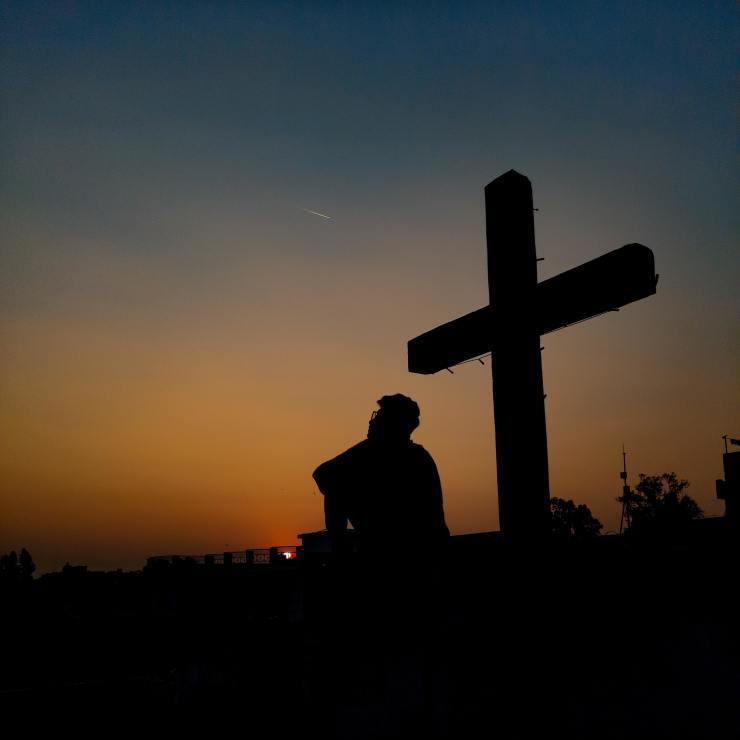
An order from the Manipur government declaring the upcoming Easter Sunday on March 31 as a working day for all state offices ignited widespread public outrage, forcing authorities to swiftly reverse the controversial directive after intense backlash from the Christian community. The controversy erupted after an initial order issued on March 27 stated that both March 30 (Saturday) and March 31 (Easter Sunday) would be regular working days across government establishments in the conflict-ridden state.
The move drew fierce criticism and protests from Christians, who account for nearly half of Manipur's population of 3.7 million. The Scheduled Tribe groups, particularly the Kuki-Zo community bearing the brunt of fatalities in the ongoing ethnic strife, denounced the order as another targeted affront by the “Meitei-majority” BJP-led government.
John Dayal, a human rights activist shocked at the order of the Manipur government stated that such an order at sensitive times as these would send a clear message to the Christian community of deliberately being targeted. “Would Manipur declare Diwali a working day? Questioned Dayal as he spoke to Christian Today. “Certainly not,” he answered.
Prominent Christian rights advocates like the United Christian Forum (UCF) and the Senapati District Catholic Union condemned the decision as unconstitutional, insensitive, and disrespectful towards the religious sentiments of a significant portion of the state's populace.
“The Manipur government has chosen to undermine the presence of 41.29 % of Christians belonging to the Naga, Kuki-Zo and Meitei communities and disrespect their sentiments by blatantly stating that it is 'pleased to declare' 30th (Holy Saturday) and 31st ( Easter Sunday) March 2024, the most Holiest of all Christian Festival as working days, fully knowing that Christians celebrates the resurrection of Jesus Christ from the dead, which is the cornerstone of the Christian faith,” said Allen Brooks, spokesperson for the Assam Christian Forum to Christian Today.
Facing mounting pressure, the Manipur government led by Governor Anusuiya Uikey issued a statement on March 28, re-establishing Easter Sunday as a holiday. The revised order declared, “In partial modification of the government order … dated 27th March 2024, the governor of Manipur is pleased to declare that only the 30th March 2024 [Saturday] will be working day for all government offices.”
The reversal came within 24 hours of the initial announcement that had stunned the Christian community across the country. Christian groups highlighted the order's disregard for religious rights, cultural diversity, and pluralism in a democratic society. Among the critics was the Senapati District Catholic Union, which lamented the insensitivity towards “sacred days” for a significant population in Manipur.
The controversy rapidly escalated to the national stage, with Congress MP Shashi Tharoor expressing grave concern over the “hurting of sentiments” of a community amid Manipur's volatile situation. Tharoor urged the central government's intervention to overturn the “surprising and worrying” order.
As public uproar intensified on social media platforms throughout March 28, the BJP swiftly launched a damage control exercise, accusing the Congress of “spreading falsehoods.” Party leaders like Prakash Javadekar and Kerala unit president K. Surendran reiterated that both Good Friday and Easter Sunday remained holidays in Manipur. They attempted to deflect criticism by questioning the opposition's stance on recent incidents like “the Hamas attack and terror attack in Russia.”
The UCF's national coordinator, A.C. Michael, termed the initial order a “deliberate attempt” to undermine minorities, expressing alarm over the “new political narrative” demeaning minority communities across India. He cited the UCF's alarming records of 731 violent incidents against Christians in 2023 alone, a significant surge since the helpline's inception in 2015.
While Brooks stated, “For a government that has allowed the conflict and the suffering of its people to continue for almost 11 months, what else can be expected.”
The controversy assumed greater significance as Manipur remains deeply divided along ethnic and religious lines. Since May 2023, the state has witnessed a protracted violent clash between the majority Meiteis, most of them Hindus, and the minority Kukis, who are predominantly Christian. The conflict has claimed over 230 lives by official counts, displaced over 60,000 people, and led to the destruction of over 600 churches, including 250 Meitei Christian churches.
In the crucial electoral battleground of Kerala, the BJP faced a daunting task of reassuring the influential Christian community amid fears that the incident could undermine its outreach efforts ahead of the Lok Sabha polls in April. The Congress capitalised on the opportunity, with the state's opposition leader V.D. Satheesan accused the BJP of harbouring an anti-Christian agenda despite its overtures.
Requesting for prayers, Brooks concluded, “Pray that India and its citizens are listening, watching and nothing what's happening in New India.”




